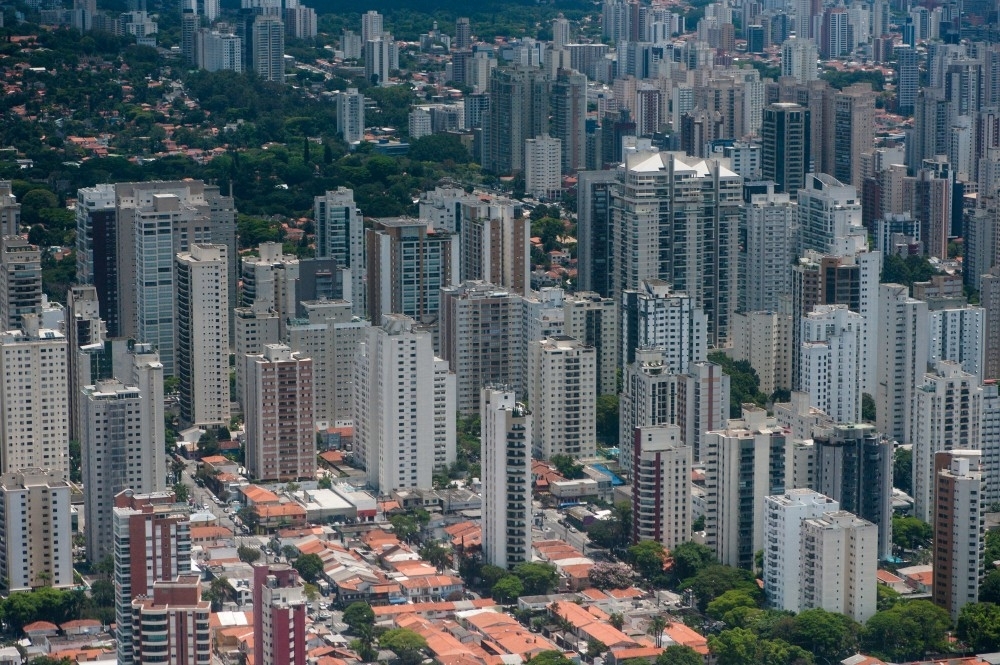


Researchers from the Center for Metropolitan Studies are working with colleagues from other countries to explain how São Paulo, London, Paris, Mexico City and Milan are governed (photo: Léo Ramos Chaves/ Pesquisa FAPESP magazine)
Published on 05/13/2021
By Heitor Shimizu, in London | Agência FAPESP – Who governs what, and who governs what the government does not govern? That is what a research project at the Center for Metropolitan Studies (CEM), a FAPESP Research, Innovation and Dissemination Center (RIDC), plans to explain.
“We are studying governance in the different political fields of the cities, looking at state and non-state actors connected by formal and informal, legal and illegal ties, surrounded by historically specific constructed institutions and urban spaces,” said Eduardo Marques, assistant director of CEM, at FAPESP Week London, held February 11-12, 2019 at the Royal Society in London.
“In 2018, the United Nations estimated that 55% of the world’s population lived in cities. That average is 82% for North America, 78% for Latin America and 74% for Europe. That same year, 47 cities had more than 10 million inhabitants, all of them facing very complex problems, especially in countries that were poorer or had more inequalities,” Marques said.
“Take the case of São Paulo, which has 12 million inhabitants in a metropolitan region of 20 million. There are 120,000 public servants and an enormous number of daily tasks, including 20,000 tons of residential trash to collect, 7,000 km of streets to sweep, 9,400 bus trips to be made while experiencing an average of 110 km of congestion every night, and 3 million residents living in precarious conditions,” he said. “With a per capita budget of 43% of all of London’s districts combined, how does the city is governed?”
Marques emphasizes that the question does not apply only to São Paulo: all over the world, there is a lack of understanding about how municipal governments work and how urban policies are made.
“We know, for example, the techniques behind systems for traffic, water and sewage, but public policies are not technical operations, but social and political processes that organize and are what are behind the use of those technical elements. We really do not know much about the processes for making urban policies,” he said.
“That gap is caused by a mutual lack of interest in local political institutions by both political science, which considers them as miniatures of the national ones, and urban studies, which believe that important processes reside in society, outside the state,” he said.
To help bridge this gap, CEM researchers have developed a comprehensive comparative survey about the patterns of governance that shape policies in the cities studied, in collaboration with colleagues from those cities. FAPESP supports studies on this topic as do the research funding agencies of the countries involved.
“The survey compares policies in São Paulo, London, Paris, Mexico City and Milan. The idea is not to precisely understand the policies, but rather, the patterns of governance behind them, and explain how they work in different places and different fields of public policy. Working together with researchers from other metropolitan areas, we are trying to understand who governs what and who governs what the government does not govern, looking at government as well as non-state actors in the different types of relations between them, and their involvement in institutions in these cities,” he told Agência FAPESP.
“The project has shown that urban policies and politics present several peculiarities due to their relations with the cities’ regions, influencing the strategies and actions of actors such as local politicians, local bureaucracies, private companies that profit directly from the city, and urban social movements,” said Marques, a full professor in the Department of Political Science (DCP) at the University of São Paulo (USP).
“By focusing on the basic elements, processes and actors that forge patterns of governance, the project contributes to a more systematic and general comparison of policies and politics in major cities in both the Northern and Southern Hemispheres,” said Marques.
The assistant director of CEM organized the book As políticas do urbano em São Paulo (“Policies of the urban in São Paulo”, Editora Unesp), released in December, which brings together, in 13 chapters, contributions by CEM researchers seeking solutions for Brazil’s largest cities, on topics such as housing, government budget management, municipal policy, elections and the formation of government, street cleaning, traffic, large urban projects and the design of subway lines.
The book addresses the question of the form of policies: why, how and by whom are changes made, which actors – internal or external to the State – take part, and what level of public debate and citizen awareness exists. Another topic the book focuses on what way do changes in São Paulo express elements that are specific to a particular policy sector and how similar are the dynamics shared by several sectors.
Learn more about FAPESP Week London at: www.fapesp.br/week2019/london.
Source: https://agencia.fapesp.br/29810